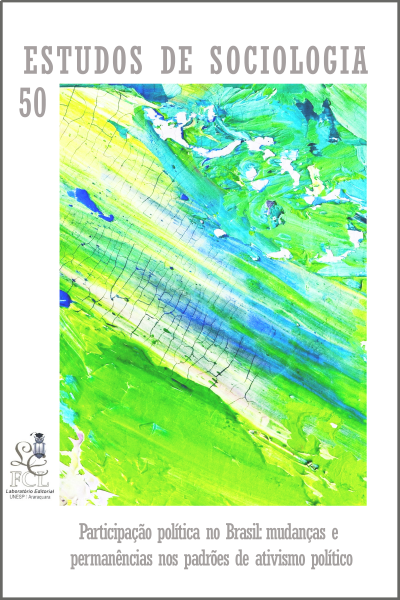Digital activism and democratic values
lessons from the Brazilian experience
DOI:
https://doi.org/10.52780/res.14836Keywords:
Digital Activism, Political Participation, Democratic Deficit, Quality of Democracy, Political ToleranceAbstract
Political participation is one of the pillars of democracy and, throughout the past decades, Political Science has argued about increasing citizens’ participation within the political process, focusing on a qualified inclusion based on dialogue and information. The rise of the Internet and social media has become a popular participation tool. Nonetheless, “digital activism”, assumes different characteristics, becoming a puzzle for scholars. Would digital participation be a “qualified” one? This study contributes to answering this question. Using the 2018 Americas Barometer, we created an indicator of the digital activism intensity in Brazil and tested its determinants as well as its effects on social and democratic values within the Brazilian electorate. The results indicate that digital activism has no significant relationship with supporting democracy or tolerance for minorities but maintains a negative relationship with tolerance for those who think differently politically.
Downloads
Downloads
Published
How to Cite
Issue
Section
License

À revista Estudos de Sociologia ficam reservados os direitos autorais pertinentes a todos os artigos nela publicados.
Os artigos publicados e as referências citadas na revista Estudos de Sociologia são de inteira responsabilidade de seus autores.
A Estudos de Socilogia utiliza a licença https://creativecommons.org/licenses/by/4.0/ (CC BY), que permite o compartilhamento do artigo com o reconhecimento da autoria.



